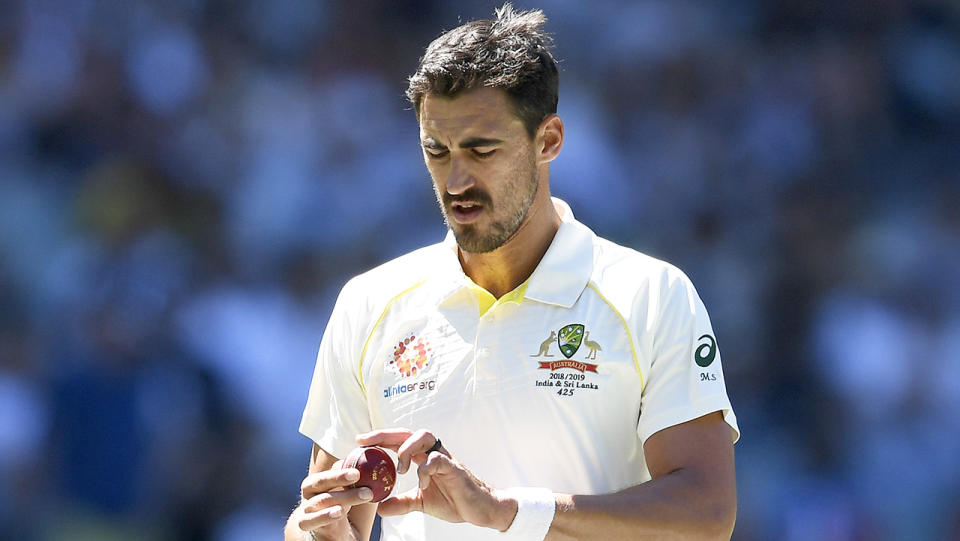Mitchell Starc's grim warning for cricket post-pandemic

Mitchell Starc has warned cricket authorities that a crackdown on legal methods of shining the ball, which helps gives bowlers swing to trouble batsmen, will deter kids from the game.
The International Cricket Council recently urged teams to adjust to an interim ban on using saliva to shine the ball, suggesting that legalising an artificial wax would fly in the face of a recent ball-tampering crackdown.
WOW: Aussie legend criticises Waugh over Warne feud
‘NOT ALLOWED’: ICC rejects Aussie plan to legalise 'ball-tampering'
The ICC's cricket committee, chaired by Anil Kumble and featuring Cricket Australia executive Belinda Clark, recommended last week that it should be illegal to use spit to work on the ball because of the risk of COVID-19 transmission.
Josh Hazlewood and Pat Cummins are among those to have since expressed concern the change could mean Test cricket becomes even more of a batsman's game whenever it returns.
And now Starc has weighed in on the debate.
The 30-year-old also said he was concerned the ICC’s recommendation to ban the use of saliva to shine the ball when the sport returns after the coronavirus shutdown would hand batsmen a big advantage.
“We don’t want to lose that or make it less even, so there needs to be something in place to keep that ball swinging,” Starc told reporters.
“Otherwise people aren’t going to be watching it and kids aren’t going to want to be bowlers.
“In Australia in the last couple of years we’ve had some pretty flat wickets, and if that ball’s going straight it’s a pretty boring contest.”
ICC reject Kookaburra initiative
Kookaburra has developed an artificial wax, allowing balls to be shined without using sweat or saliva.
Kumble admitted the cricket committee discussed the innovation, but ultimately didn't want to proceed with something which could be viewed as tantamount to ball-tampering.
The ICC sought to stamp out tampering after the Cape Town sandpaper saga in 2018, having been deeply concerned when an arms race between teams wanting to generate reverse swing erupted in unedifying fashion.
With Reuters
